“Corridor” and “Gateway” are all about movement: our candidates for the Offshore have to cross corridors, find their way through gateways, and end up traveling outside of the compound into The Garden, a lovely oasis that only 9% of the population manages to see.
They are also about character movement. People like Joana and Rafael, who were intriguing but static in their first appearances (she was aloof, he was arrogant) suddenly jump forward in their character arcs, becoming more vibrant, complex individuals with intriguing backstories.
Not everything is perfect—it does fall into a couple of the tropes it has attempted to studious avoid, and it’s not above shock character deaths—but 3% continues to entertain and provide compelling, compassionate looks into its characters.
Warning: spoilers for the first four episodes of 3% in both the recaps and the analysis. If you’re looking for our non-spoiler thoughts, fear not: you can check last week’s analysis.
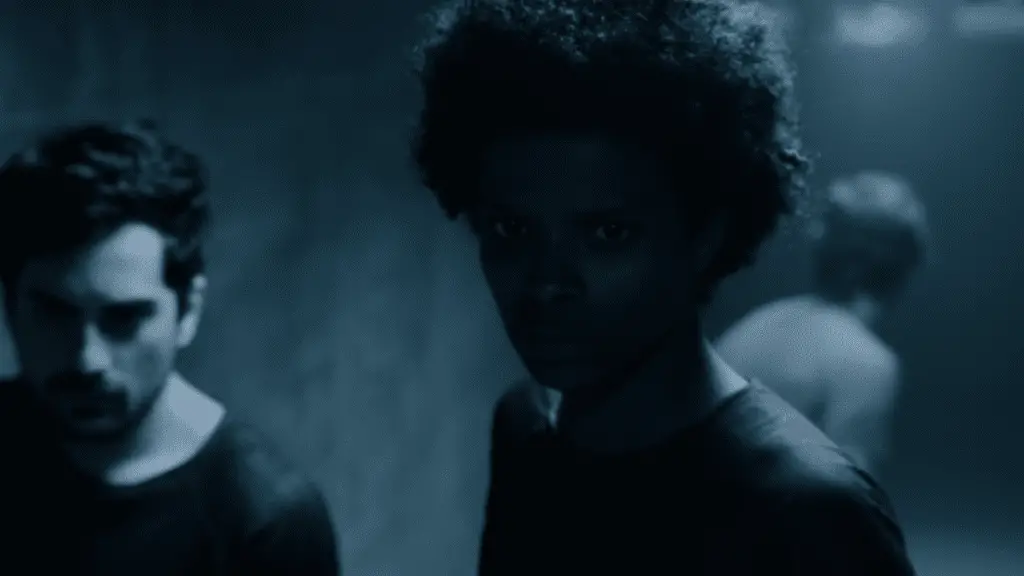
Episode 3: Corridor
The next test of the Process is here: divided in small groups, the candidates need to collectively cross a tunnel. Pretty simple, right? Not really: a gas is released inside the tunnel, causing each candidate to hallucinate with their worst memories, fears, doubts, and paranoias. What a fun ride! Joana is having a hard time, hallucinating a child and hearing voices calling her a murderer. She reaches the end of the tunnel and begs for the organizers to open the door, but they answer the entire group must cross together. Joana does the only sensible thing to do: one by one, she drags the other candidates, sometimes literally, until they all get there. Everybody passes the test, though they’re not the same anymore.
Ezequiel is impressed with Joana and wants to find out more about her. He dodges Aline’s questions, both personal and regarding the point of the corridor test, but his loyal employee Cassia doesn’t. She wonders if they would have passed this test along with Aline and the other members of the council, but Ezequiel doesn’t want questions.
The remaining candidates are taken to a dorm room to recover from the effects of the gas, where Fernando and Michele share a few kisses and a cute moment together. Joana can’t sleep and leaves her bed when she spots a child in the hallway. This seems to trigger a few memories, and we learn what happened in her past: a vulnerable unregistered orphan, Joana struggled for her survival in a rough setting. Trying to retrieve a backpack that was taken from her, she accidentally killed the son of a militia leader. Terrified and with a price on her head, she got the fake id of “Joana Coelho” and enrolled in the Process to run away.
Following the mysterious corridor child, Joana is attacked by Agata, still very shaken by the effects of the gas. Rafael saves her and she finally opens a bit with him. Rafael notices her fake id and says he now knows she won’t denounce him, because he could do the same. He says they can be allies for more reasons than just the blackmail and he doesn’t care what she did in the past, because he knows she’s a good person.
Joana doesn’t find out who the kid was, but we do: a small boy visits Ezequiel in the middle of the night. Ezequiel gives him food and new glasses, watches him play with cube pieces, and explains he won’t be able to see him as often as before and he can’t sneak into the Process facilities again. They’re interrupted by Aline, who almost catches the kid and is more certain than ever that Ezequiel is hiding something.
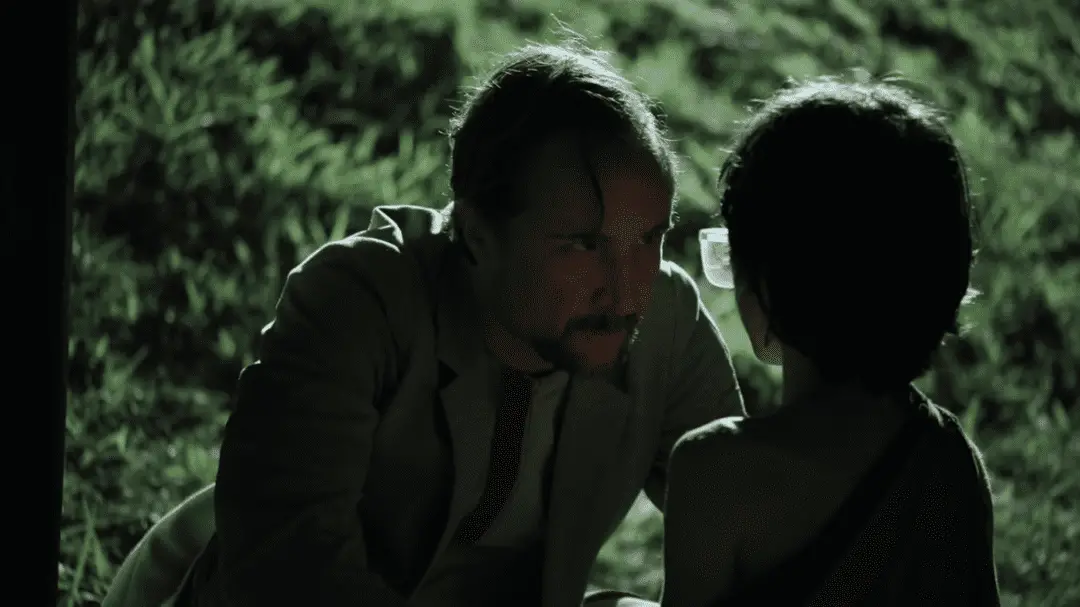
Episode 4: Gateway
As the candidates wake up, they realize they’re locked in the dorm with no food or water. Marco soon figures out how to get a small supply from a vent if they collectively perform simple tasks. He coordinates the group and, with minor issues, they all get food and water sooner or later. That’s it, that was the test. They all passed, right? Not according to Ezequiel: he stops sending supplies for the candidates even when they perform all steps correctly, and then sends everything all at once. You know, just to stir the pot.
Michele organizes the supplies so everybody gets the same amount, but Marco seems resentful. He asks Rafael why would the organizers send so much food at once and Rafael answers they won’t be leaving the dorm any time soon. Marco agrees and assembles a group of strong dudes to try to force one of the gates open, making their own way out. They succeed…only to discover there’s another, stronger gate ahead. The group of dudes is hungry after all this physical effort, so Marco demands food from the other candidates. When they deny, he uses violence to take it.
Keeping the tradition of previous episodes, this time we get flashbacks for Marco. He grew up rich and privileged, with a maid taking care of him after his parents became part of the 3%. He was raised to believe he would be selected too, and before leaving for the Process he writes a letter to his unborn son. He says his son will succeed too, because they are superior and they should take what’s theirs by right. Ouch.
Marco and his gang get increasingly violent as they take everybody’s food and imprison many other candidates. Even the Process organizers are scared, but Ezequiel seems pleased. Michele tells Fernando they must defend themselves, and with the help of other candidates they improvise barricades to stop Marco’s advance. Rafael reaches breaking point when Marco kills another candidate just because she was hiding food. So far the only member of the gang questioning Marco’s methods, Rafael confronts him and has to run for his life. Michele and the others don’t want him there, but he whispers something to her and she promptly lets him in.
Meanwhile, Joana’s having none of this shit. As soon as she realizes what Marco and his gang are doing, she leaves the dorm using the food vent. Ezequiel welcomes her outside, explaining the test as she watches everything unfold on the cameras. She says they all passed the test, but Ezequiel replies that would be assuming all work is rewarded, resources are endless and the world is fair, but she knows too well that’s not true. Ezequiel gives her two options: eating a delicious steak and leaving the Process, eliminated, or trying to stop this mess.
When the barricade is almost breaking, Joana comes back and releases the prisoners. They beat the crap out of Marco and his gang, until Joana tells them to stop. Michele and the others leave the barricade, and the gates of the dorm finally open. Everybody runs outside, but a heavily injured Marco crawls towards the exit. He doesn’t make it in time, being crushed by the closing gates. Ouch! Outside, Fernando asks Michele what Rafael said to her. She says she simply trusted him, but a flashback shows Rafael betraying a friend to steal his id so he could have a second chance at the Process. He failed the Cause once, but it wouldn’t happen again.
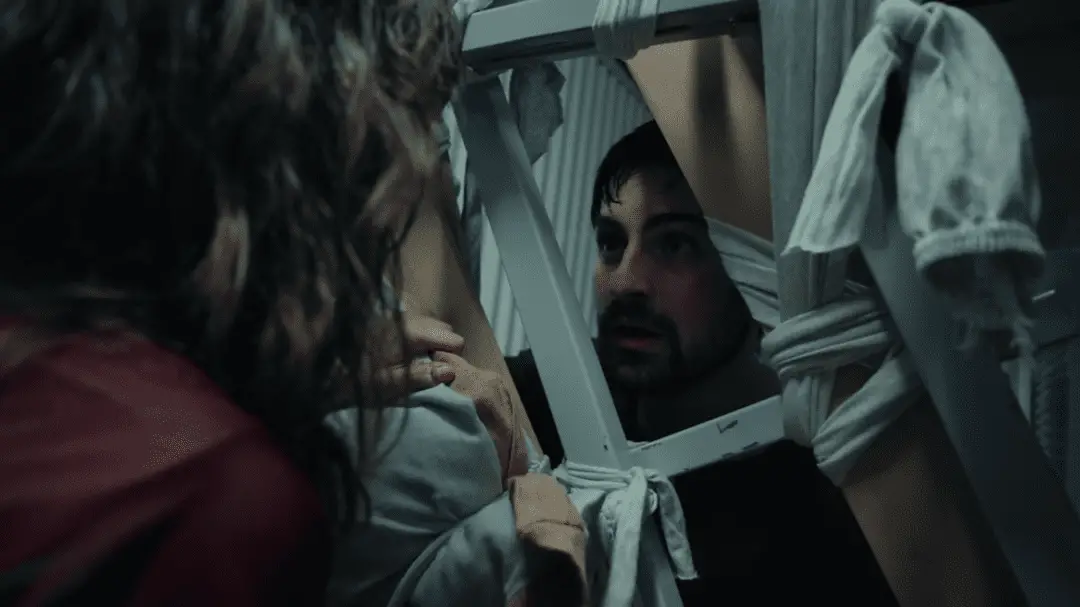
Priscilla: We’re halfway through. That was fast! My expectations were high after the first two episodes, so I’m happy the show didn’t disappoint. There were a few things that didn’t work that well, yes, but that’s a good sign… It means I can still criticize this show when it deserves.
Katie: I’m still really liking this show. I was slightly worried when I felt episode three was a slight step down from the first two—more on that in a bit—but episode four was possibly my favorite one yet. The structure of the show reminds me a little of Lost. I know that’s umm, a potentially divisive comparison (though it’s a compliment coming from me). But it’s hard for me to ignore! Mysterious circumstances, strangers learning to trust each other, each episode focusing on a new backstory.
Priscilla: I thought about Lost as well, with each episode focusing on a different character’s background. It’s working for me so far, especially because it usually connects nicely with whatever is happening in that episode. Once more I feel both episodes were character-driven, which is a good decision for two reasons. First, because it makes the overused tropes more interesting and the moments that don’t work that well more bearable. Second, because the characters are still the show’s strongest feature. Two of my favorites developed a lot in those two episodes: Joana and Rafael.
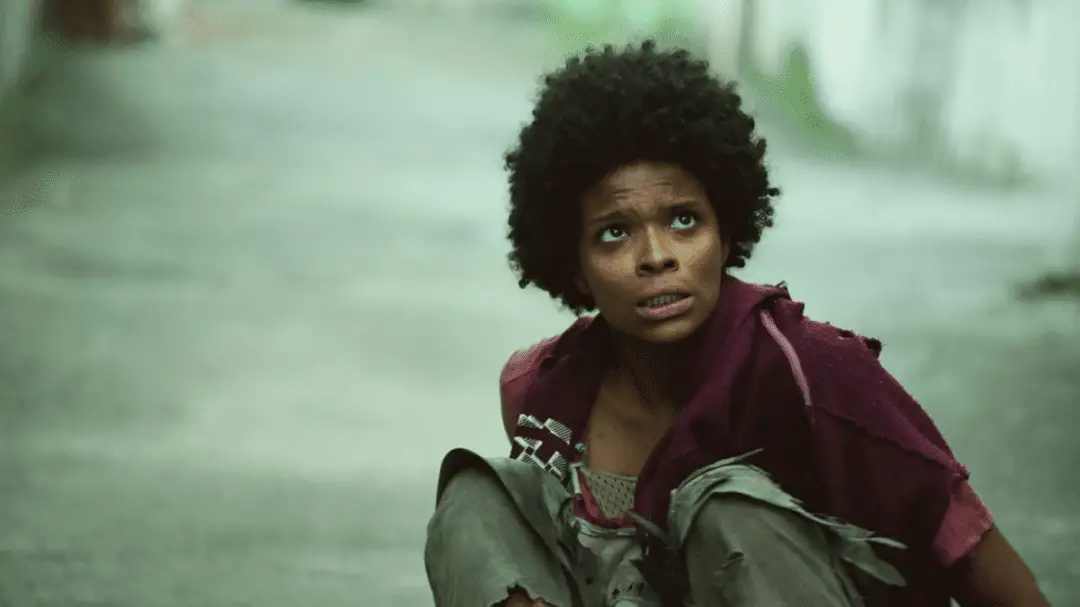
Joana
Katie: We had been talking last week about how we wanted more on Joana & Rafael, and we got it!
Priscilla: Yes! I can’t complain! I think they’re my favorite characters to watch so far. Joana until now was the least developed among the main group, almost falling into the “tough angry Black woman” trope. Both episodes gave her excellent character moments, exploring her past, her motivations, and her growing relationship with other candidates. Not only we understood what made her so ruthless, but the character was also humanized and got a few extra layers. Vaneza Oliveira, Joana’s actor, has probably my favorite performance in the show, subtly conveying both toughness and vulnerability.
Katie: Oh, that’s a good point. I hadn’t thought of that stereotype, but you’re right. And yes, the actor is great. Her character is pretty stoic by nature but she’s able to convey a wide range of emotions really subtly. And that fits in with her background—she seems to have survived largely on her own growing up.
Priscilla: The background episode was important for that, because we could see where all this toughness comes from. Among the candidates whose backgrounds we’ve seen, she lived in the most vulnerable situation. So far in the Process she always seemed both smart and physically skilled, but her background gave me the impression that she had to be. She needed to be very good in everything in order to survive.
What did you think of her accident with the child?
Katie: I didn’t think it was the most original backstory in the world, but I thought it was well done. I wonder if we’re ever going to find out what was in the backpack? I thought the aftermath of the accident was really good too. Not only does she feel guilty for what happened, but she loses what small connections to other people that she had. It was an accident, but it makes her totally alone.
Priscilla: Agreed. It’s not a very original idea, but it works because it’s well done, well acted and develops an interesting character further. Making the death be an accident is kind of easy, you know, because that way the character can still be likable. It’s interesting that she doesn’t really want life Offshore, she’s just running away from Inland.
Katie: That’s a great point. And I like how these two episodes, while establishing why she would be so self-isolating at the start, also shows her taking small steps to work against these tendencies. She single-handedly saves pretty much everyone in “Gateway,” choosing to intervene despite an initial (understandable) instinct to crawl out the air duct to freedom. And just as importantly—maybe more so—she starts opening up to Rafael.
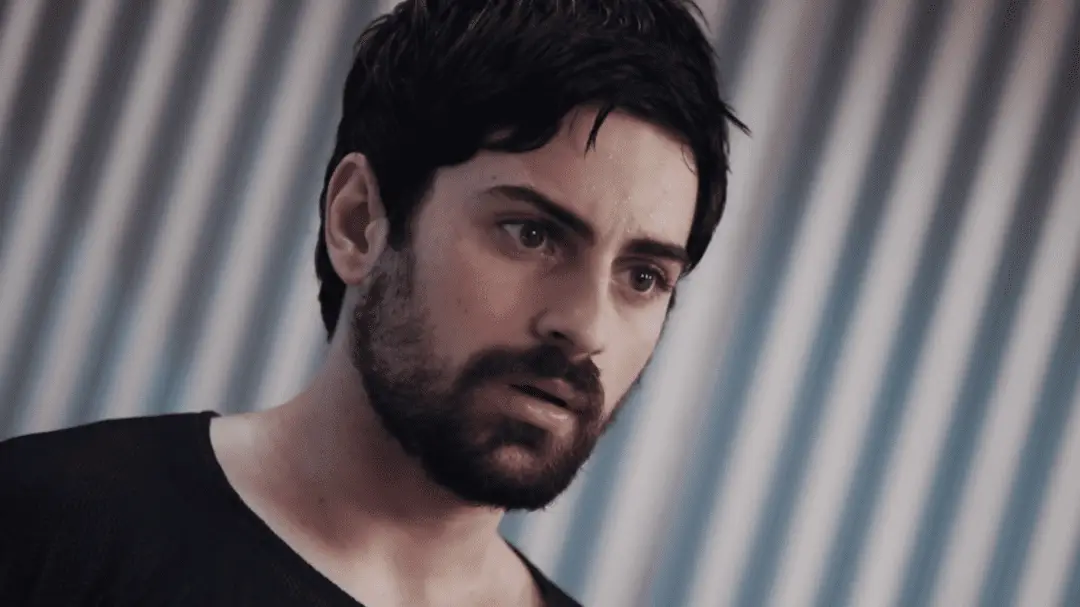
Rafael
Katie: Despite his overall terribleness in episodes one and two, his temporary occupation as gang enforcer in “Gateway,” his betrayal (maybe murder?) of the original Rafael, I can’t help but sort of like Rafael? I hope it’s not just because he’s pretty.
Priscilla: I like him too! I love his dynamic with Joana. At first she was intimidating for him, always a step ahead, and he could be an asshole to pretty much anyone except her. But as Joana grew softer, so did he. We could see a Rafael that cares, that has something good underneath all that jerkness, that can still tell wrong from right and be affected by it. On that sense, Marco was a nice foil for him too: while Rafael is the apparent jerk that is actually a nice guy somewhere underneath, Marco is the apparent nice guy waiting to morph into his true form of entitled little shit.
Katie: And you called it! He’s the other mole! Right before it happened I was like “OH MAN, PRISCILLA IS GONNA BE RIGHT”
Priscilla: It’s funny because I had two theories for Rafael’s fake id: that he was somebody who failed the Process once and needed the fake id to try again, or that he was a mole. But I wasn’t thinking *both* could be true!
Katie: You were just doubly right!
Priscilla: Hahaha! That makes me happy! So, on the topic of Rafael: I very much appreciated his development, because he’s still a jerk, but he’s an interesting jerk.
Katie: Me too! The fact that he’s the mole makes his whole arc more interesting to me. Because instead of being about a jerk who gets a “redemption” arc for not being jerky enough to murder people, it’s (at least probably) about a guy who’s employing questionable tactics for something he believes in. Which is think it just more intriguing. I would love to know what his first attempt at the Process looked like. I’m kind of assuming he was too passive or nice. And that’s why he came in full-on cheating and being-a-jerk. But maybe I’m reading too much into it and want him to be an okay guy?
Priscilla: Me too! At some point I realized I’m gonna be really sad if he gets eliminated (not to mention something worse). And that’s my reading too. Because he must have some reason to believe he has to be a jerk with others, and he seems certain that’s the way to go.
Katie: I think it makes his actions as a part of Marco’s gang a little more realistic as well. It didn’t seem all that in character to me at first—he’s a jerk but he’s never seemed particularly violent—but it does make more sense if he feels like he has to do it to avoid elimination. I think it helped in this episode that he mostly interacted with Joana, who he could never get away with talking down to. And because while he’s clever and good at talking so he can often win over a room, once it got physical and violent he was out of his element. And it was interesting to see how that changed his attitude.
Priscilla: Yes. So far Rafael and Joana were bonding together, and their interactions were among my favorites, perhaps because both characters are so interesting. But now they kind of bonded with the rest of the group. Rafael because of his choice to leave Marco and his new dynamic with Michele, and Joana because now we know she does care.
Katie: I’m a sucker for stories where people team up because they have to and eventually stay teammates because they want to
Priscilla: Right? Me too! And honestly, screw grimdark. I’m all in for stories about friendship, hope, follow your dreams, stuff like that. And it’s funny because I love dystopias!
Katie: Me too! The setting is dark enough, let’s have all the dystopian characters be kind to each other! But yes, you’re right: Rafael’s new dynamic with fellow-mole Michele could be really interesting going forward. Especially since they’re on the same side but their strategies in the Process have been miles apart from each other’s. Despite the fact that they’ve both betrayed and possibly murdered people to get as far as they have in the Process.
Priscilla: And it’s interesting, because the Cause is not “the obvious good guys”. It raises the good old question of how much the ends justify the means. Michele didn’t exactly kill Bruna in the “pulled the trigger” sense, but Bruna’s blood is in her hands.
Katie: That’s true. I feel like a lot of how I judge people’s morality on a small-scale, personal level is based on intent, so it’s hard for me to label someone like Rafael a Bad Person for doing what he did. Even if I tend to be, umm, VERY skeptical of murdering for nebulous causes.
Priscilla: Yes, I think intent counts a lot. But you know, he still knew what he was doing. I like that grey morality, really. Because “how much is too much when you’re fighting the good fight” is a good question, and one that doesn’t have an easy answer. It’s like Michele and Bruna, I think. She knew she was doing something wrong, and not in the “sure, it’s wrong, but it’s for a good reason” sense. It wasn’t really in cold blood. We could see how guilty she was feeling and how guilty she still feels. I think it’s similar with Rafael.
Katie: Yeah, it’s like that old ethical question. If murdering someone right in front of you will save a hundred people on the other side of the world, do you do it? And it gets even messier when it’s so up in the air whether those other people are actually going to be saved by your actions.
Priscilla: Yes! You have to believe it’s gonna work, otherwise you would have traded that life for nothing. But I really, really wonder what’s Michele and Rafael’s goal within the Process. Because they seem focused on passing the Process… but why? Are they going to distribute pamphlets Offshore? Hahaha. What do they expect to accomplish, objectively speaking?
Katie: Hahaha! I hope that’s the whole plan. The mind-blowing season finale. Pamphlets.
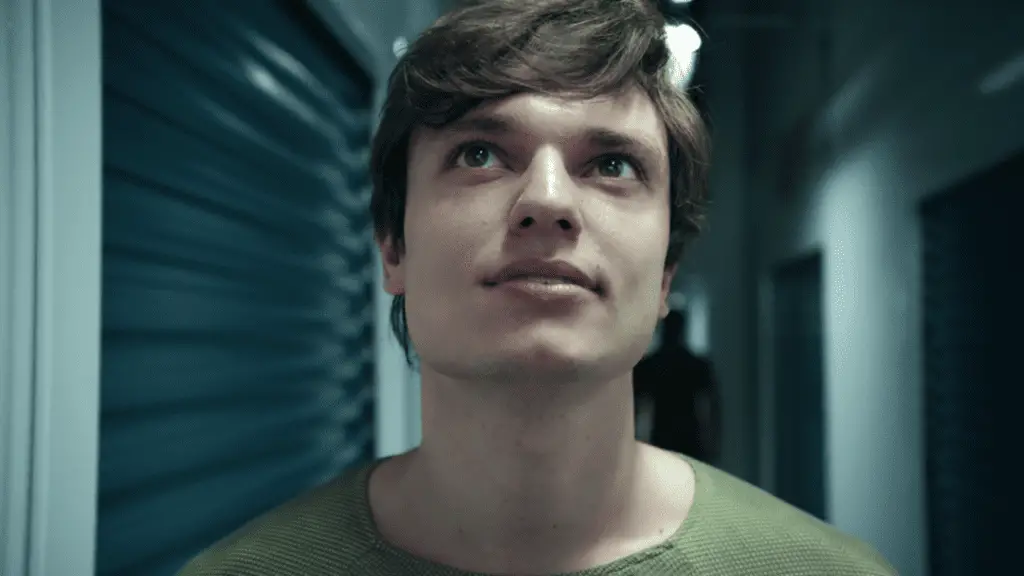
Marco
Katie: And then there’s Marco.
Priscilla: Marco. I wasn’t expecting his arc to take this direction at all.
Katie: Did you think transformation into gang leader was too abrupt? I sort of thought so at first, but the more I thought about it the more it made sense to me.
Priscilla: For a moment Marco showing his true colors felt abrupt, but the more I think about it, the more it makes sense. We thought he was a nice guy, but we really didn’t see that much of him. He didn’t need to show that much of him. I guess that’s where privilege and entitlement comes in—so far everything was smooth for him, but when it wasn’t, he couldn’t handle the pressure. You can see he didn’t even consider the possibility he didn’t have what it takes to be part of the 3%. I loved the actor’s expression on the final scene, as he was crawling on the halls. Because he was expressing the kind of disappointment that only a deep sense of entitlement can give you.
Katie: Ooh. I love that phrase.
Priscilla: This reminds me: I heard that some people were taking the show’s message as an endorsement of meritocracy instead of a criticism for how flawed that meritocracy is in our society. And I have to ask… how? I know we still have four more episodes to go, but how can you watch this show and think “yeah, I guess the biggest lesson here is that you can be a part of the 3% if you try hard”. They crushed the entitled privileged guy with the gate he was trying to open ffs
Katie: haha! The only way I could see that would be if you interpreted it along these lines. Yes, sure there are privileged people like Marco, but because he was secretly a bad privileged person, the meritocracy weeded him out and instead rewarded a person like Joana. I can’t really imagine that’s the message the show was trying to send though? It would be genuinely shocking to me if the show would up being pro-Process with everything we’ve seen so far. Pretty much everything we’ve seen so far undermines the legitimacy of the Process. Most of our main characters are there illegitimately in some way (either moles, with fake IDs, or both). Of the two who weren’t, one went on a killing spree and the other seems to be on a path to becoming more and more disillusioned with the whole system.
Priscilla: Yes! And even people Offshore are questioning this Process, thinking more than 3% should pass, etc. But that’s interesting too; it’s so hard to break with a system that is so internalized, even when everybody realizes how crazy it is.
Katie: I was also really intrigued about how much of this was explicitly organized by Ezequiel. It was interesting to me that he seemed displeased when everyone talked about how much they like Marco. And then he changed the task, and ultimately ended it by having him taken down by Joana, who’s pretty much his socioeconomic opposite. I almost felt like Ezequiel was trying to convince himself that the Process worked, and it didn’t favor wealthy / established families over others. Like he was thinking to himself, “Yes, this woman can take down this privileged guy, so the system really is based on merit.” When they had their conversation, and he was emphasizing the poverty of the Founding Couple and Joana’s worthiness, it sounded like he was trying to convince himself.
Priscilla: That’s a good point, I hadn’t considered that. Ezequiel and Joana’s interaction was really interesting, I want to see more of them! Ezequiel’s changes of the test also hinted at how displeased everyone else is with him. Because okay, he proved the point that Marco is an idiot, but at what cost, you know.
Katie: Right? It makes me wonder how often he’d make changes like that in the past. And how much authority he actually has. It seems less like a Process and more like the slightly-crazy whims of one guy.
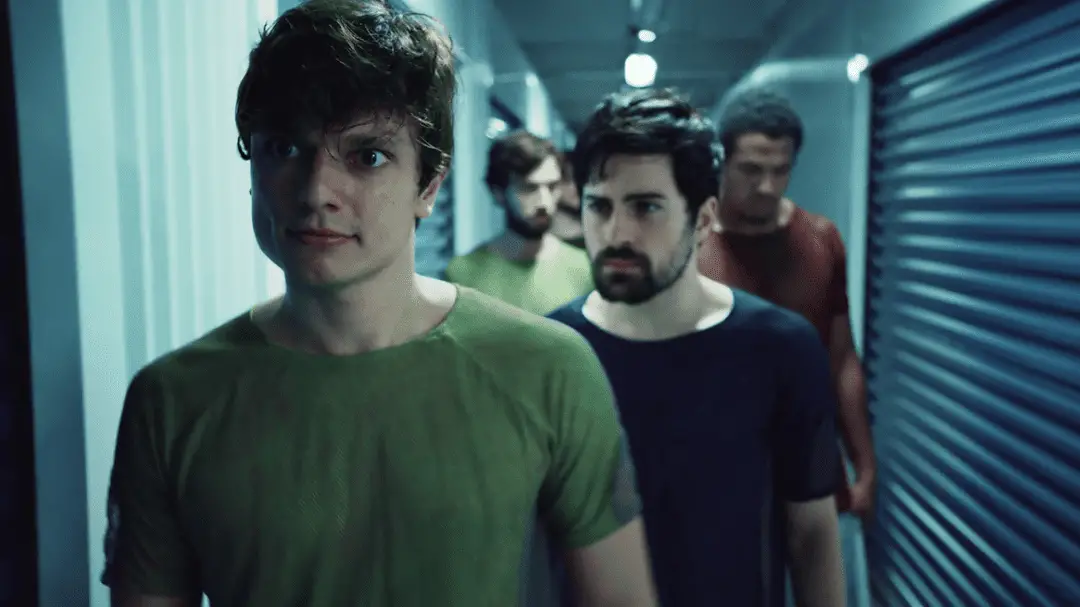
Tropes and Violence
Katie: Things weren’t perfect, of course. I think we both had some issues with some heavy-handed writing and some unnecessary violence. What did you think of the tunnel test?
Priscilla: I have to confess the Gas of Dystopian Science sounds a bit too trope-y for me. It reminded me instantly of Hunger Games and the birds that mimic your loved ones screaming.
Katie: Yes! Exactly. It seemed lazy on the part of the writers, as if they were looking for a convenient way to say all their characters’ greatest weaknesses out loud. Also, it seemed like a really big escalation from “build cubes from blocks” and “solve the murder mystery!”
Priscilla: Hahahaha! Right? Now that you said it, both the tunnel and the gates tests were a bit too extreme compared to what they were doing before. But that’s interesting in a way, because you can see the candidates don’t question that, they just go along with the Process, no matter how random or mean it is.
Katie: I feel like the gate test didn’t both me as much in that regard because it seemed like another relatively simple problem-solving test (with the added problem of hunger thrown in – more Hunger Games!) until Ezequiel escalated things.
Priscilla: Yes, that’s a good observation! The gate test makes sense—let’s put them all together and see if they can solve problems, organize themselves and whatnot. Ezequiel ruined things, sure, but it was a pretty simple test if they had stopped it when the other organizers wanted to. So when you think about it, the tunnel test is the one that doesn’t fit the pattern. What exactly they were trying to evaluate? Ezequiel says something about having to deal with their fears, paranoias, etc when they go Offshore. But that’s not exactly dealing so much as exposing. I guess the tunnel test doesn’t fit so well because it serves the audience more than the test organizers.
Katie: Yeah, I can understand the idea that the Process would want to make sure people were able to deal with fears in a healthy way, or something like that. But yikes! Sticking them in a dark tunnel and pumping it full of hormones is really intense. It struck me more as a shortcut to get Joana’s backstory going. Which wasn’t my favorite choice, but it also didn’t bother me that much.
And then there was Marco getting smashed in the gate.
Priscilla: Yeah, it felt too graphic, too different from the show’s tone so far. He brought his elimination upon himself and that would’ve been fair. But he died crushed by a gate or at least got severely injured… that was a bit gratuitous (and almost anvilicious?). You can’t even say “Marco got what he deserved” because he got more than anyone deserves, really. I still hope the show goes somewhere with that! Maybe Marco survives and something happens, maybe he died horribly but this causes somebody to do something or change somehow. Anyway, I hope such a graphic death wasn’t there just because.
By the way, it’s interesting that when Joana releases the prisoners you don’t get this feeling of “hah, now they’ll get what they deserve” because Michele, Rafael and the others look so terrified with all the violence. Learn something, Game of Thrones!
Katie: Ooh, that’s a good point. If he’s dead, I wonder how his family Offshore will react when they find out.
Priscilla: Yeah. I think his family freaking out is an interesting possibility. After all, the entitlement is not just his, it’s his family’s too, just as he thinks his own son is gonna be a champ. So I imagine their reaction upon hearing their prized son was crushed by a gate during the Process… Though I’m not sure they could do anything, and I can see this not being a plot point at all. It could also be that Marco’s death deeply affects the surviving candidates or even Ezequiel’s colleagues, being the breaking point for somebody. Or maybe Marco does survive, albeit deeply injured, and we follow whatever happens with his arc. I’m just gonna be upset if nothing happens, because his death seemed so gratuitous.
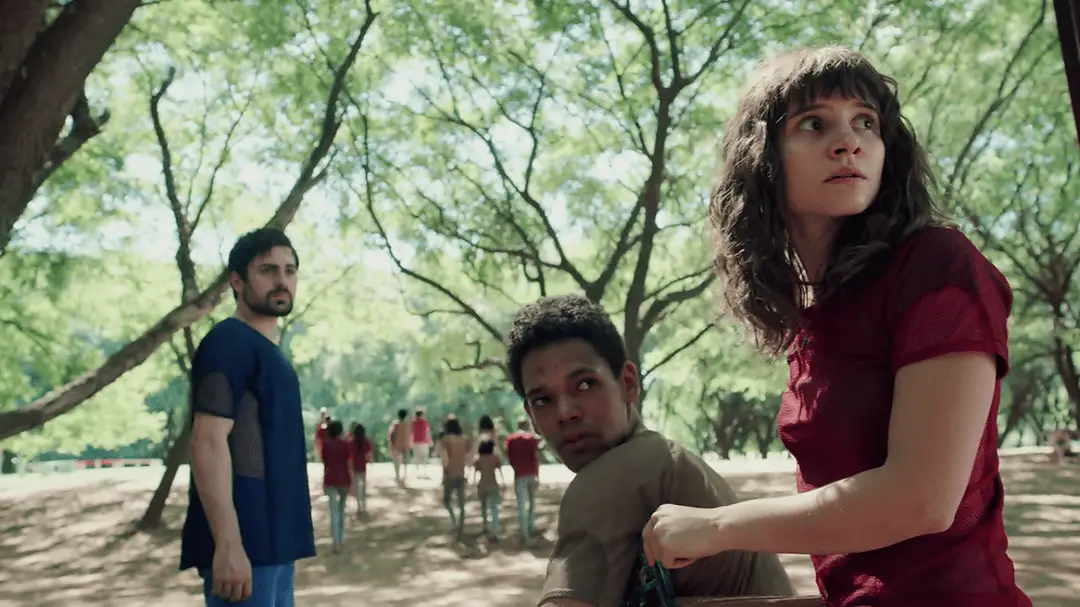
We’re already halfway through 3% (!) and there are still plenty of questions awaiting answers. What is The Cause trying to do? How long til other characters discover Rafael and Michele’s secret? What does the forces working against Ezequiel want? Is the adorable little boy who breaks into the compound Ezequiel’s son? If so, why is he fending for himself? What happened to Julia, his (presumptive) mother? What’s up with the Offshore? Will season two be a quirky neighborhood comedy as Joana, Fernando, Michele and Rafael pal it up as exclusive members of the 3%? We’ll be back next week to hopefully get some answers.
Images courtesy of Netflix.
[starbox id=”Priscilla,Katie W”]

